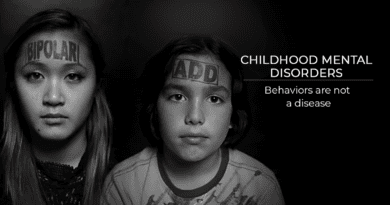How Personality Disorders Affect Everyday Life
Personality disorders are enduring patterns of thinking, feeling, and behaving that significantly differ from societal expectations and norms, often affecting relationships and daily functioning. These patterns often create significant challenges in relationships, work, and overall quality of life. While everyone may exhibit some traits associated with personality disorders at times, those diagnosed with a disorder face persistent difficulties that affect multiple areas of their lives. Understanding how personality disorders influence everyday functioning can provide insights into the struggles individuals experience and foster greater empathy and support.
Interpersonal Relationships
One of the most noticeable impacts of personality disorders is on relationships. Individuals with Personality disorders may struggle with forming and maintaining healthy connections due to maladaptive behaviors, emotional instability, or difficulties with trust. For example, someone with borderline personality disorder (BPD) might experience intense fear of abandonment, leading to overly dependent or erratic behaviors. Conversely, an individual with narcissistic personality disorder (NPD) might have difficulty empathizing with others, which can result in strained or superficial relationships.
Conflict is often a recurring theme in the lives of those with personality disorders. Misunderstandings, emotional outbursts, or manipulative behaviors can alienate friends, family, and colleagues. Over time, these relational challenges can lead to isolation, exacerbating feelings of loneliness and emotional distress.
Emotional Regulation
Difficulty managing emotions is a hallmark of many personality disorders. For example, individuals with BPD often experience rapid mood swings and intense emotional reactions to seemingly minor events. These emotional highs and lows can make daily life unpredictable and exhausting, not only for the individual but also for those around them.
Emotional dysregulation can manifest as anger, sadness, or anxiety, often triggered by interpersonal interactions or internal struggles. Inconsistent emotional responses may disrupt work, social interactions, or self-care routines, creating a cycle of frustration and guilt.
Workplace Challenges
The workplace often highlights the challenges associated with personality disorders. For individuals with avoidant personality disorder (AVPD), fear of criticism or rejection can make collaborative work or social interactions daunting. On the other hand, those with obsessive-compulsive personality disorder (OCPD) may struggle with perfectionism, leading to inefficiency or conflict with coworkers who perceive them as rigid or overly critical.
Personality disorders can also affect professional advancement. Erratic behavior, difficulty with authority, or an inability to manage stress may lead to job loss or stagnation in career growth. These setbacks can negatively impact self-esteem and financial stability, creating further stress and challenges.
Self-Perception and Identity
Many individuals with personality disorders grapple with issues of identity and self-worth. Those with BPD, for example, often experience a fragmented sense of self, leading to confusion about their values, goals, or even their role in relationships. This lack of a stable self-image can result in impulsive decisions, self-destructive behaviors, or feelings of emptiness.
Low self-esteem is another common struggle, particularly for individuals with dependent or avoidant personality disorders. These individuals may rely heavily on others for validation, leading to an increased vulnerability to criticism and rejection. Over time, these struggles can undermine self-confidence and foster feelings of helplessness.
Health and Well-being
The effects of personality disorders often extend to physical health and overall well-being. Stress from interpersonal conflicts, emotional turmoil, or workplace difficulties can manifest in physical symptoms such as headaches, fatigue, or digestive issues. Additionally, some individuals may turn to unhealthy coping mechanisms, such as substance abuse or self-harm, to manage their distress.
Poor self-care routines are also common. For instance, someone with schizoid personality disorder might neglect physical health due to a lack of motivation or interest, while individuals with dependent personality disorder may struggle to make autonomous decisions about their well-being without external guidance.
Coping Strategies and Support
Despite these challenges, individuals with personality disorders can lead fulfilling lives with appropriate treatment and support. Therapy, particularly approaches like cognitive-behavioral therapy (CBT) or dialectical behavior therapy (DBT), can help individuals develop healthier coping mechanisms, improve emotional regulation, and foster better relationships. Platforms like TalktoAngel offer online counseling services tailored to address these concerns, making therapy accessible and convenient.
Creating a solid support system of family, friends, and mental health experts is essential. Encouraging open communication, practicing patience, and providing consistent support can make a significant difference in the lives of those with personality disorders. Education about the specific disorder can also help loved ones understand the individual’s experiences and provide more effective support.
For those seeking in-person therapy, ThePsychowellness offers a range of services with experienced professionals specializing in managing personality disorders. Experts such as:
- Dr. R. K. Suri, a Chartered Clinical Psychologist with over 40 years of expertise, specializing in hypnotherapy and neuropsychological assessment.
- Mrs. Kala Sengupta, is a Clinical Psychologist, licensed by the RCI, with 33 years of expertise specializing in ADHD, autism, and child development.
- Ms. Gurleen Kaur, an expert in addressing addiction, anxiety, and adjustment disorders, offering compassionate care and tailored therapeutic solutions.
- Ms. Sudipta Das, adept in managing PTSD, depression, and OCD.
- Ms. Riya Rathi specializes in helping individuals cope with trauma, anxiety, and life transitions, providing compassionate and effective therapeutic support.
- Dr. Afroz S. Khan, addressing various personality and behavioral concerns.
Their evidence-based approaches, including CBT and psychodynamic therapy, ensure tailored treatment for individuals navigating these challenges.
Conclusion
Personality disorders profoundly impact everyday life, influencing relationships, emotions, work, and self-perception. While the challenges are significant, understanding and addressing these issues through therapy and support can pave the way for meaningful improvement. By fostering empathy and offering appropriate assistance, society can help individuals with personality disorders navigate their unique challenges and lead fulfilling lives.
For more information, visit TalktoAngel for online counseling services or ThePsychowellness for offline support, where experienced psychologists provide expert care tailored to individual needs.
References
- American Psychiatric Association. (2013). Diagnostic and Statistical Manual of Mental Disorders (5th ed.). Washington, DC: Author.
- Linehan, M. M. (1993). Cognitive-behavioral treatment of borderline personality disorder. New York: Guilford Press.
- Paris, J. (2015). Personality disorders: A practical guide (3rd ed.). Washington, DC: American Psychiatric Press.
- Siever, L. J., & Davis, K. L. (1991). A psychobiological perspective on the personality disorders. American Journal of Psychiatry, 148(12), 1647–1658. https://doi.org/10.1176/ajp.148.12.1647




